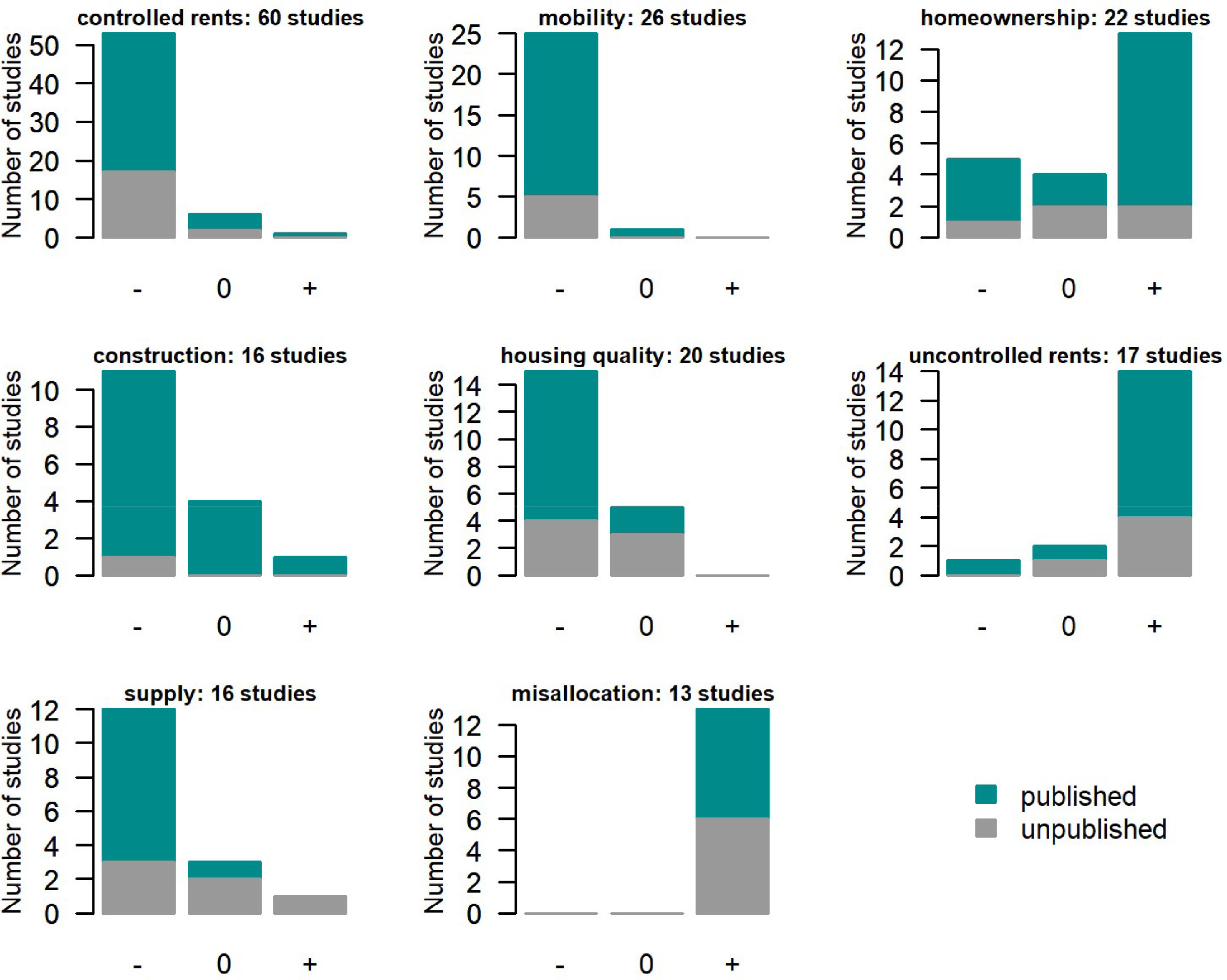[[{“value”:”Kholodilin offers a comprehensive review of the literature on rent control, some 206 papers, published and unpublished from 1967-2013. The results are summarized in the figure below where (-) indicates papers finding a negative effect, (0) no effect and (+) a positive effect. The top left figure, for example, shows, not surprisingly, that almost all
The post Rent Control appeared first on Marginal REVOLUTION.”}]]
Kholodilin offers a comprehensive review of the literature on rent control, some 206 papers, published and unpublished from 1967-2013. The results are summarized in the figure below where (-) indicates papers finding a negative effect, (0) no effect and (+) a positive effect. The top left figure, for example, shows, not surprisingly, that almost all papers find that rent controls does lower rents in the rent-controlled units.
Most papers that study the issue, however, find that rents increase in the uncontrolled units (middle row, right column.) In other words, “the imposition of rent control amplifies the shortage of housing. Therefore, the waiting queues become longer and would-be tenants must spend more time looking for a dwelling.”
Similarly, “nearly all studies indicate a negative effect of rent control on mobility” (top column, middle row).
Importantly, “the published studies are almost unanimous with respect to the impact of rent control on the quality of housing….[namely] that rent control leads to a deterioration in the quality of those dwellings subject to regulations.” (middle row, middle column).
The post Rent Control appeared first on Marginal REVOLUTION.
Data Source, Economics

Leave a Reply